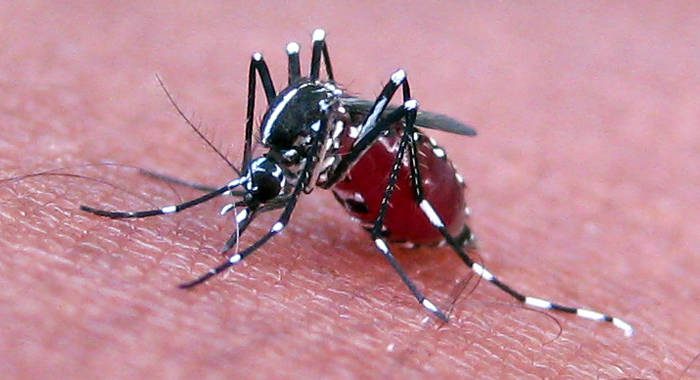Minister of Health Clayton Burgin on Thursday said his ministry considers as “very serious” the potential threat of the mosquito-borne Zika virus, which has been confirmed in Brazil and could reach the Caribbean, including St. Vincent and the Grenadines.
“I, therefore, urge everyone to do his or her part to prevent mosquito breeding and so help to reduce any possibility of the introduction of the Zika virus into the island,” he said in a statement.
Burgin said that the professionals in the ministry are working assiduously to put in place the necessary surveillance systems to detect this new virus.
“… we will work with regional public health agencies like CARPHA to strengthen our laboratory detection and also our integrated vector control program to be able to respond to yet another vector-borne disease,” he said.
He noted that there is no specific vaccine or treatment for the virus, which is spread by the aedes aegypti mosquito, which also spreads the Chikungunya virus and dengue fever.
The signs and symptoms of Zika virus include fever, joint and muscle pain, conjunctivitis, headache, weakness, rash, and swelling of the lower limbs or the legs.
“… I, therefore, urge you to understand and appreciate that personal responsibility is critical,” he said, adding that his ministry will continue to monitor the developments and put measures in place to reduce the aedes aegypti mosquito population and we will update residents accordingly.
“… may I remind you of the importance of keeping your surroundings clean and to avoid conditions that can give rise to the breeding of mosquitoes.
“Your health is a shared responsibility. Let us, therefore, all work together to keep our blessed land clean and Zika free,” Burgin said.
“May I emphasise that the aedes aegypti mosquito, which spreads the Zika virus, is the same mosquito that is responsible for the transmission of Dengue and Chikungunya. This mosquito is generally found in and around places where people live and work.
“I, therefore, ask you, ladies and gentlemen, to do whatever is necessary to help to destroy the mosquito. You can do so by searching for and destroying mosquito breeding sites, by getting rid of old tyres and containers in which water can settle, by punching holes in tins before disposing, and by covering large drums, barrels and tanks holding water,” Burgin said.
The Zika virus was first isolated in 1947 in the Zika Forest in Uganda, in the Rhesus monkey. It was later isolated in humans in 1952 in Uganda and Tanzania, and in 1968 it was detected in human samples in Nigeria. In 2007, the first major outbreak of Zika virus fever occurred on the Island of Yap, where the outbreak lasted 13 weeks.
After the bite of a Zika virus infected mosquito, symptoms usually appear following an incubation period of 3 to 12 days. The symptoms last for four to seven days.
There have been no reported cases of deaths due to the Zika virus.
In February 2014, the public health authorities of Chile confirmed that there was a case of the Zika virus, and currently the public health authorities of Brazil are investigating a possible transmission of the virus.
This recent outbreak of the Zika virus in different regions of the world is an indication of the potential spread of the virus across territories where the aedes aegypti mosquito is present, Burgin said.






